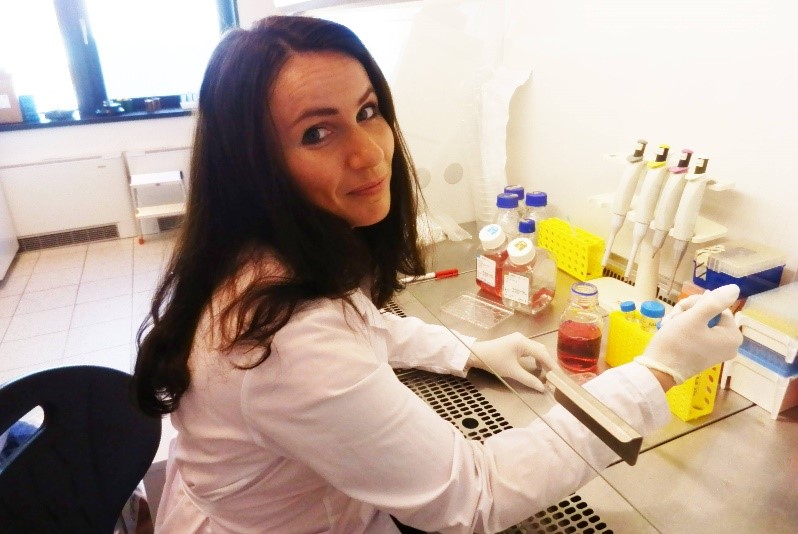Dorota Kołbuk-Konieczny, PhD from Laboratory of Polymers and Biomaterials is the laureate of the call Small Grant Scheme 2020 financed with the participation of Norwegian funds under the “Applied Research” Program organized by the National Centre of Research and Development. The title of the project is “Preclinical study of the implant for reconstruction of the cruciate ligament with a substitute for bone regeneration”, acronym BioLigaMed.
Dorota Kołbuk-Konieczny, PhD graduated with master studies in Materials Science and Engineering, Warsaw University of Technology and doctoral studies at the Institute of Fundamental Technological Research, Polish Academy of Sciences (Poland). She is an alumnus of the Socrates-Erasmus Program (Institute of Air Handling and Refrigeration and the Dresden University of Technology, Germany), the SCIEX Program (EMPA St. Gallen, Switzerland) and Top500 Innovators Program (Cambridge University and Oxford University in United Kingdom).

Professionally Laureate is linked to the research of the molecular structure of polymers/biomaterials and tissue engineering- scaffold development for ligament, cartilage and bone regeneration. She attended in training on technology transfer, preclinical research and medical devices regulation, research management and commercialization. Her scientific results were presented at several international conferences and published in reputable scientific journals.
The project aims to develop a prototype of the implant for ACL reconstruction and regeneration and verify its biological and mechanical performance in preclinical conditions. The developed prototype of the implant will have biomimetic properties. The biocompatibility of the implant will be verified, and preclinical studies on small and large animals will be carried out with our external partners.
Currently, in the case of significant damage to ligaments and tendons, the standard treatment approach is to use autografts. In some cases, autografts are replaced by decellularised allografts or xenografts. Gold standard treatments do not bring the expected results. For this reason, the overall aim of the research today is to develop a modern, innovative graft for reconstructing and regenerating ACLs. An artificial graft should provide biocompatibility, continuous and uninterrupted pore structure, good mechanical properties, bioactivity, and successfully replace functions of the natural ligament. It has to be able to work in the presence of ,,an aggressive” environment of synovial fluids. For this reason, their structure should be stable during the time of cell migration through the artificial graft. It should also promote cell activity. Among commercially available implants for ACL rebuilding and those being studied in the literature are mainly nonvowens and braided fabrics. A new trend has appeared in the literature, which combines advantages of different artificial graft-forming techniques to achieve a hybrid structure mimicking the structure and mechanical properties of natural ACL (information about the progress of the project on: ligamed.ippt.pan.pl).
The National Centre for Research and Development Is the programme operator of the programme ‘Applied Research’ implemented under The Norwegian Financial Mechanism 2014-2021. The aim of the project Small Grant Scheme 2020 are applications research in engineering and technical science, including: civil engineering; electrical engineering, electronics, information engineering; mechanical engineering; chemical engineering; material engineering; medical engineering; environmental engineering; environmental biotechnology; industrial biotechnology; nanotechnology; other engineering and technical sciences.
Due to the specific nature of the competition, only female scientists can become a Principal Investigator in the Small Grant Scheme 2020 competition. List of the laureate is available on the website: https://www.gov.pl/web/ncbr/small-grant-scheme-2020-call
Congratulations to the winners!
















